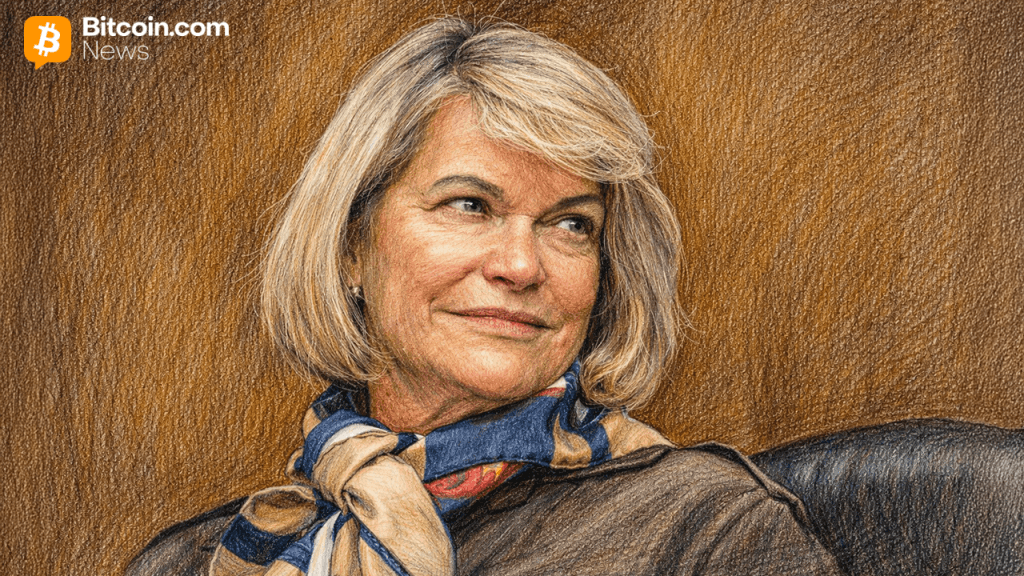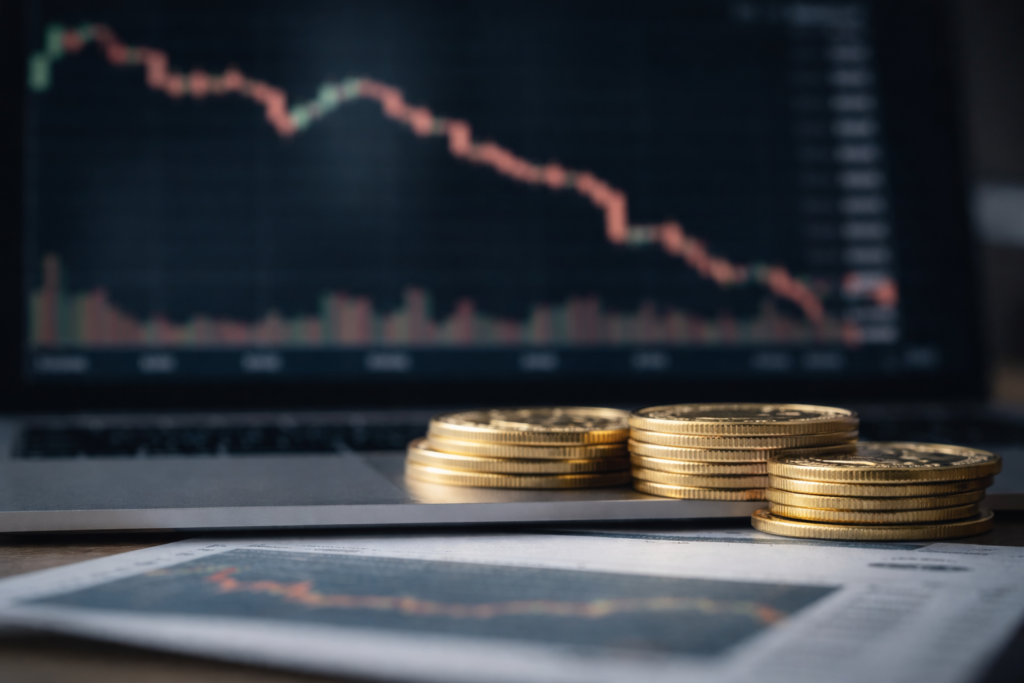Fidelity Digital Assets Advocates Special Evaluation of Bitcoin in Crypto Portfolios
(Originally posted on : Crypto News – iGaming.org )
Fidelity, the third-largest asset manager in the world with a whopping $4.24 trillion in discretionary assets under management (AUM), is a staunch advocate of Bitcoin (BTC). Its subsidiary, Fidelity Digital Assets (FDA), is entirely focused on the cryptocurrency investing market.
FDA offers a unique perspective in its most recent research paper, highlighting the need to evaluate Bitcoin differently from other digital assets while constructing investment portfolios in the cryptocurrency industry. Chris Kuiper and Jack Neureuter, the report’s authors, state that “Investors should hold two distinctly separate frameworks for considering investment in this digital asset ecosystem.”
New players only. Exclusive Welcome Bonus of up to $2,500
Two Frameworks for Crypto Investments
The first framework places a focus on Bitcoin and recognizes it as a newly emergent financial asset. The inclusion of additional digital assets that have characteristics similar to venture capital investments is explored by the second framework, in contrast.
The paper emphasizes that Bitcoin’s primary value proposition is that it serves as a valuable store of wealth and a limited supply of money. Unlike many other digital assets, BTC’s main objective was to address the problems of digital scarcity and to develop a censorship-resistant type of digital currency.
The paper makes the case that given the unavoidable trade-offs between decentralization and security, alternative blockchains are unlikely to exceed Bitcoin as a store of value. The report’s authors assert that Bitcoin is now the most secure and decentralized monetary network, essentially barring alternative networks that have functions other than serving as a medium of exchange.
New players only. Exclusive Welcome Bonus of 350% + 150 Free Spins
Bitcoin’s resilience, or the Lindy Effect, is a result of its enormous network effects and its shown capacity to endure threats and attacks. The globalization of the larger digital asset ecosystem and the potential volatility of conventional macroeconomic circumstances are the two main tailwinds driving Bitcoin’s returns, according to the analysis. Furthermore, compared to other crypto assets, Bitcoin offers higher rewards with lesser risk.
Non-Bitcoin digital assets, on the other hand, are thought to have higher risks and rewards akin to venture capital investments. According to the research, “Allocating to non-Bitcoin tokens is often done with a venture capital-like mindset.”
The paper finds that cryptocurrency investors should evaluate Bitcoin separately as a financial asset before evaluating other, higher-risk digital assets that might supplement their portfolio due to the particular risk and return profile of Bitcoin. With this method, it is possible to examine Bitcoin and other digital assets’ prospective advantages and disadvantages in the ever-changing cryptocurrency market more precisely.







 Bitcoin
Bitcoin  Ethereum
Ethereum  Tether
Tether  XRP
XRP  USDC
USDC  Solana
Solana  TRON
TRON  JUSD
JUSD  Dogecoin
Dogecoin  Lido Staked Ether
Lido Staked Ether  Figure Heloc
Figure Heloc  WhiteBIT Coin
WhiteBIT Coin  Bitcoin Cash
Bitcoin Cash  Cardano
Cardano  USDS
USDS  Hyperliquid
Hyperliquid  Wrapped stETH
Wrapped stETH  LEO Token
LEO Token  Ethena USDe
Ethena USDe  Wrapped Bitcoin
Wrapped Bitcoin  Canton
Canton  Binance Bridged USDT (BNB Smart Chain)
Binance Bridged USDT (BNB Smart Chain)  Chainlink
Chainlink  Monero
Monero  Stellar
Stellar  USD1
USD1  Wrapped eETH
Wrapped eETH  Litecoin
Litecoin  Dai
Dai  sUSDS
sUSDS  Avalanche
Avalanche  Zcash
Zcash  Sui
Sui  Coinbase Wrapped BTC
Coinbase Wrapped BTC  Hedera
Hedera  PayPal USD
PayPal USD  Shiba Inu
Shiba Inu  WETH
WETH  Toncoin
Toncoin  Rain
Rain  Cronos
Cronos  USDT0
USDT0  MemeCore
MemeCore  World Liberty Financial
World Liberty Financial  Tether Gold
Tether Gold  Polkadot
Polkadot  PAX Gold
PAX Gold  Uniswap
Uniswap  Mantle
Mantle  Ethena Staked USDe
Ethena Staked USDe  Bitget Token
Bitget Token  BlackRock USD Institutional Digital Liquidity Fund
BlackRock USD Institutional Digital Liquidity Fund  Falcon USD
Falcon USD  Aave
Aave  Pepe
Pepe  Bittensor
Bittensor  OKB
OKB  Circle USYC
Circle USYC  Global Dollar
Global Dollar  HTX DAO
HTX DAO  Sky
Sky  syrupUSDC
syrupUSDC  Ripple USD
Ripple USD  NEAR Protocol
NEAR Protocol  Internet Computer
Internet Computer  Ethereum Classic
Ethereum Classic  Aster
Aster  BFUSD
BFUSD  Pi Network
Pi Network  Ondo
Ondo  MYX Finance
MYX Finance  Pump.fun
Pump.fun  Gate
Gate  Worldcoin
Worldcoin  KuCoin
KuCoin  Ethena
Ethena  POL (ex-MATIC)
POL (ex-MATIC)  Jupiter Perpetuals Liquidity Provider Token
Jupiter Perpetuals Liquidity Provider Token  USDD
USDD  Cosmos Hub
Cosmos Hub  Quant
Quant  Superstate Short Duration U.S. Government Securities Fund (USTB)
Superstate Short Duration U.S. Government Securities Fund (USTB)  Jito Staked SOL
Jito Staked SOL  Midnight
Midnight  Algorand
Algorand  Aptos
Aptos  USDtb
USDtb  Binance-Peg WETH
Binance-Peg WETH  Rocket Pool ETH
Rocket Pool ETH  Official Trump
Official Trump  Binance Bridged USDC (BNB Smart Chain)
Binance Bridged USDC (BNB Smart Chain)  NEXO
NEXO  Wrapped BNB
Wrapped BNB